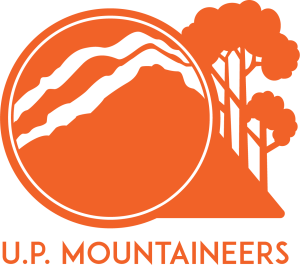Sierra Madre Nature Trail
PROJECT TITLE
A traverse and mapping of the longest mountain range in The Philippines
NAME OF ORGANISATION
University of The Philippines Mountaineers
Snapshot
The Sierra Madre Nature Trail project aims to traverse and map the entire length of the Sierra Madre, the longest mountain range in the Philippines. The absence of organised efforts to link the disparate trail system has kept it fragmented– a challenge the UP Mountaineers are now tackling head-on. With an indicative route of approximately 815 kilometres, this thru-hike trail aims to be the country’s top contribution to the mountaineering world. At the grassroots level, the initiative makes a point to involve the indigenous people’s communities in the decision-making process and has been powered by volunteerism since its conception. The trail’s overall purpose is to contribute to the conservation of the Sierra Madre forest and biodiversity – among others to save the Philippine crocodile, a severely threatened species.
View of MPA Assessor
Upon completion, this trail will be a gift to those interested in mountaineering, climbing and outdoor recreational activities. Overall the project focuses on promoting the idea and culture of practicing nature-based tourism with a deliberate and dedicated effort to provide co-benefit to both community (through capacity building, income generation and building sense of ownership) and nature (including regenerative strategies to contribute to forests growth – tree nurseries, tree plantation).
Project Objectives and Vision
Conceptualised as an eight-year project in mid-2019, the Sierra Madre Nature Trail (SMNT)’s overall purpose is to contribute to the conservation of the Sierra Madre forest and biodiversity, as well as its local communities’ inclusive growth, through the establishment of a scenic-thru hike destination that adheres to a sustainable trail management and protection plan.
The SMNT project aims to traverse and map the entire length of the Sierra Madre, the longest mountain range in the Philippines. The absence of organised efforts to link the disparate trail system has kept it fragmented– a challenge the UP Mountaineers are now tackling head-on. With an indicative route of approximately 815 kilometers, this thru-hike trail aims to be the country’s top contribution to the mountaineering world.
Through consultations with local stakeholders and outdoor groups, the UP Mountaineers have already identified and linked trails across six provinces that will comprise SMNT. It also integrates capacity-building workshops that focus on organisation, local legislation, and ecotourism, as well as skills-based sessions on mountain guideship, and emergency response.
Through capacity-building workshops, the organisation is helping to educate and empower the local communities to buy into the idea of nature-based tourism. By then supplementing these with regenerative strategies like putting up tree nurseries and conducting tree planting, nurturing, and inventory trips. Ideally, with the additional income, local communities will develop a sense of ownership that is crucial in the protection of the Sierra Madre Mountain Range.
The project in itself has been powered by volunteerism since its inception in 2019. UPM team members are putting in their own time, money, and effort into this passion project they all believe in. From within UPM, 64 volunteers are helping with the SMNT project in various capacities. They work at their own expense, supplemented by fund-raising activities such as selling artwork and conducting art workshops, and soliciting monetary pledges from alumni. Current funds are essentially split between trail explorations and community onboarding.
During the conceptualisation phase, the UPM team made it a point to inform the national agencies overseeing aspects of the project like the Department of Environment and Natural Resources, the Department of Tourism, the National Commission on Indigenous Peoples, and the Armed Forces of the Philippines, as well as local and regional government units like the municipal councils, and provincial and congressional leadership.
They furthermore collaborate with other outdoor clubs that share the same fire, as well as other not-for-profit organisations that specialise in conservation. Working with them widens the network for more help, which in turn helps make up for the shortcomings of such a being a purely volunteer-driven project.
UIAA Mountain Protection Award Nominees


